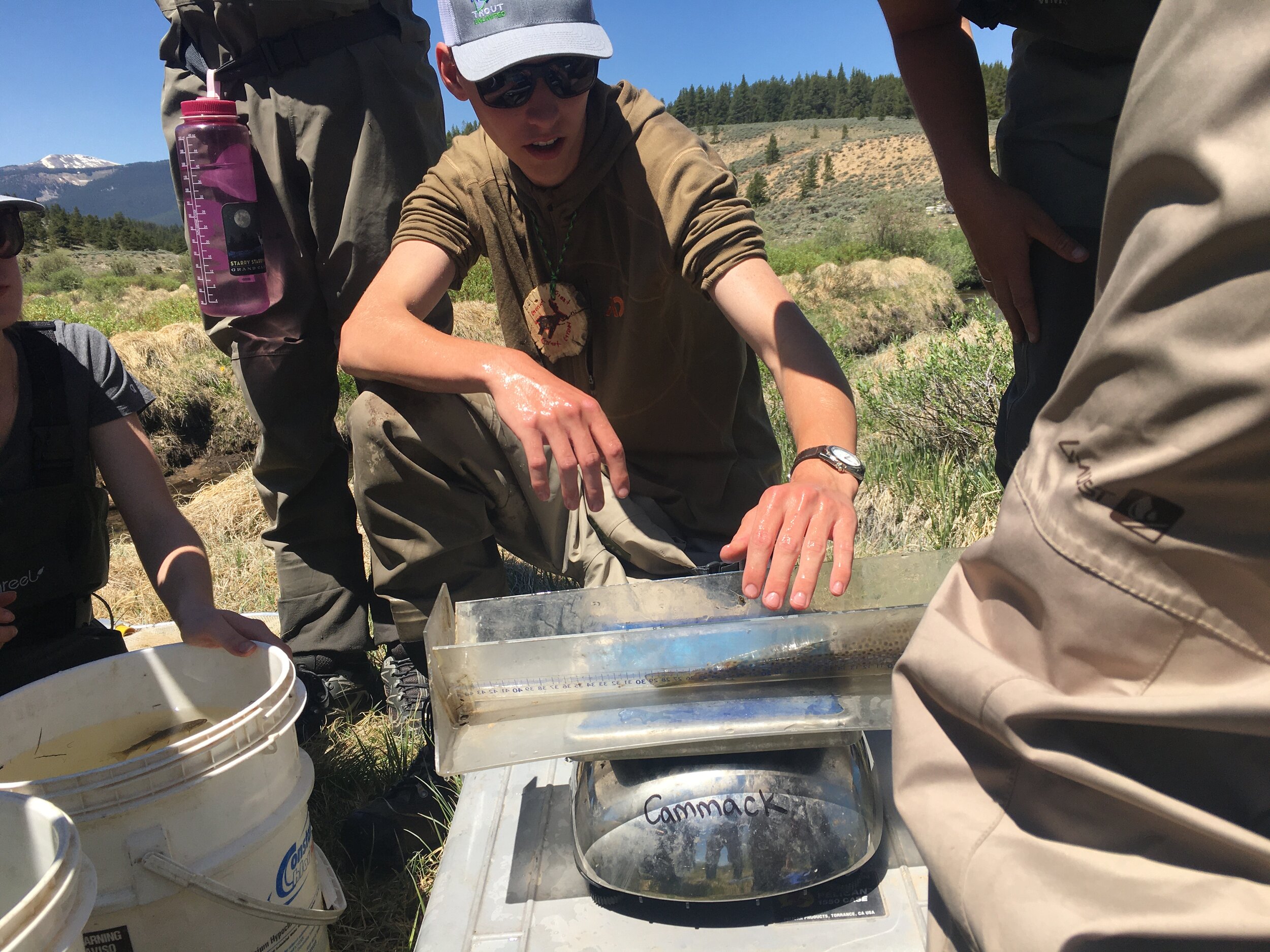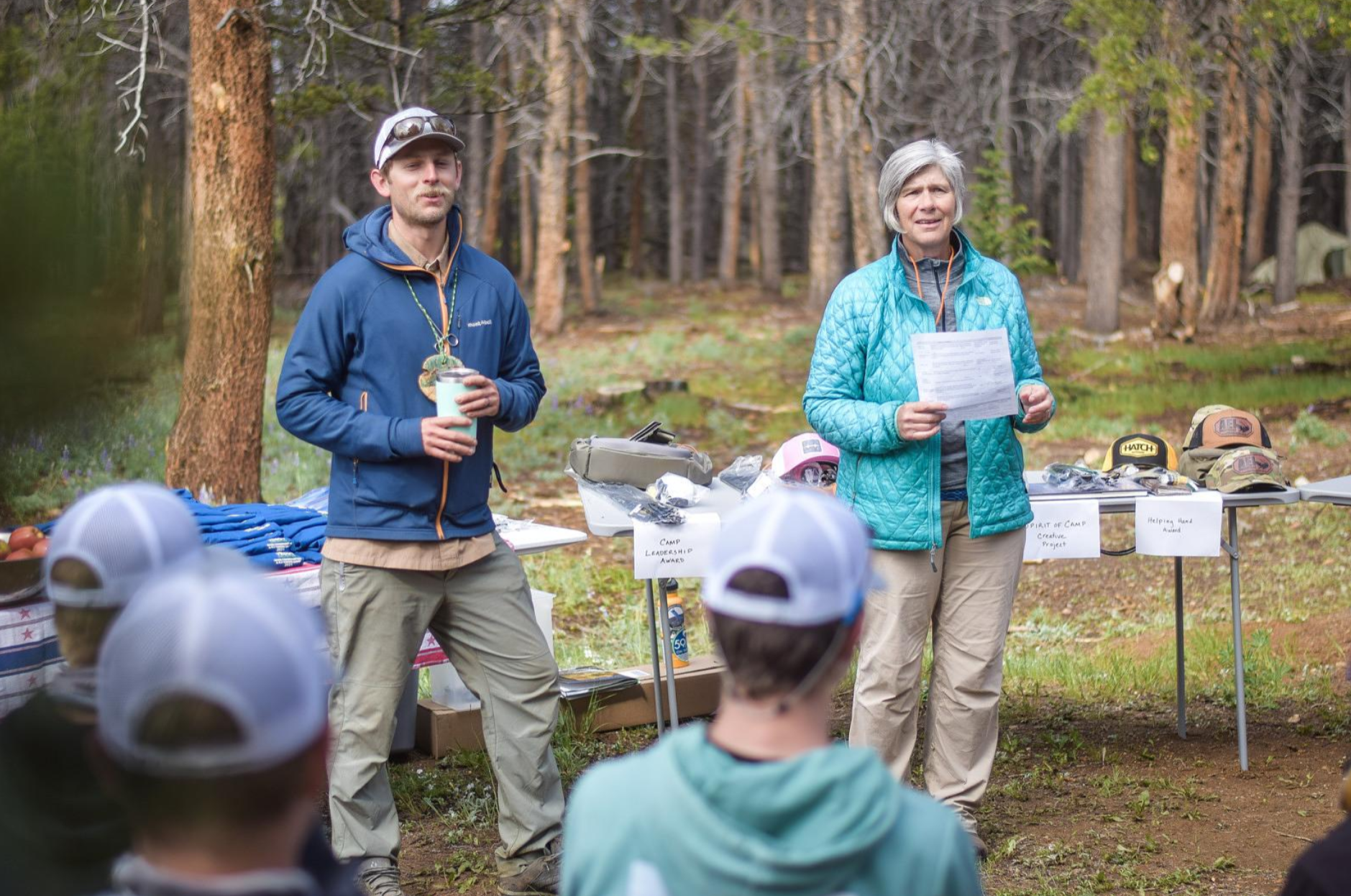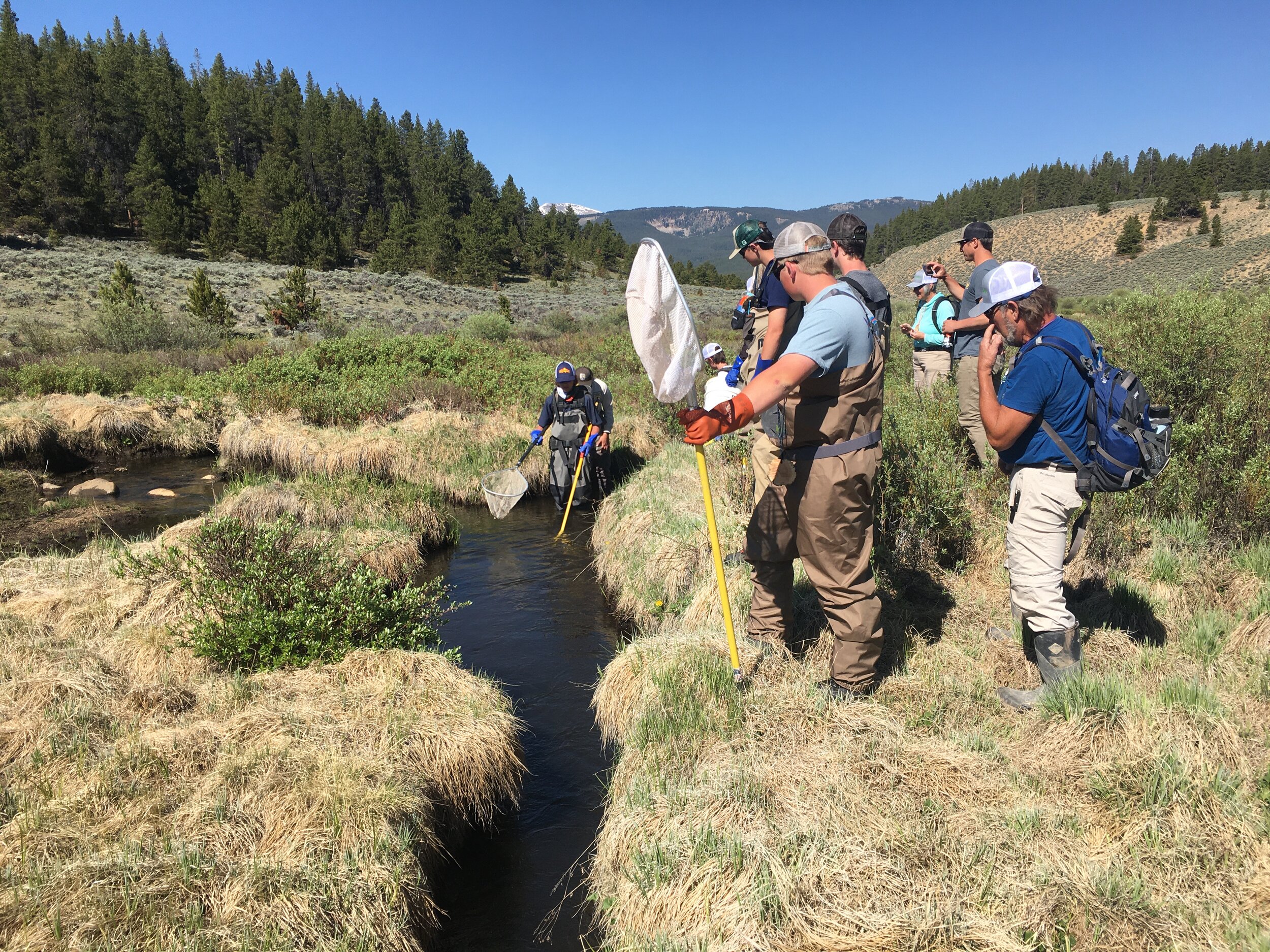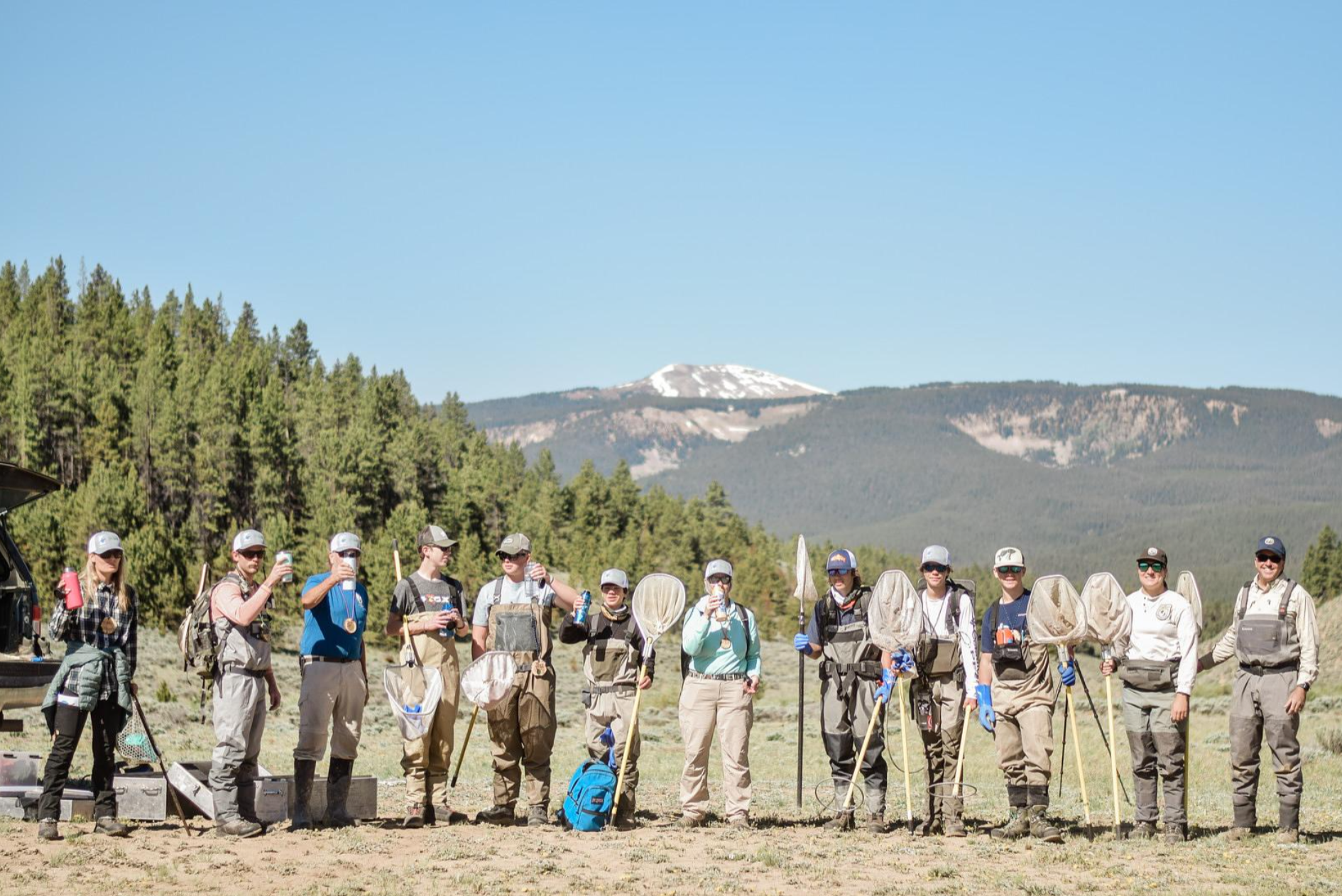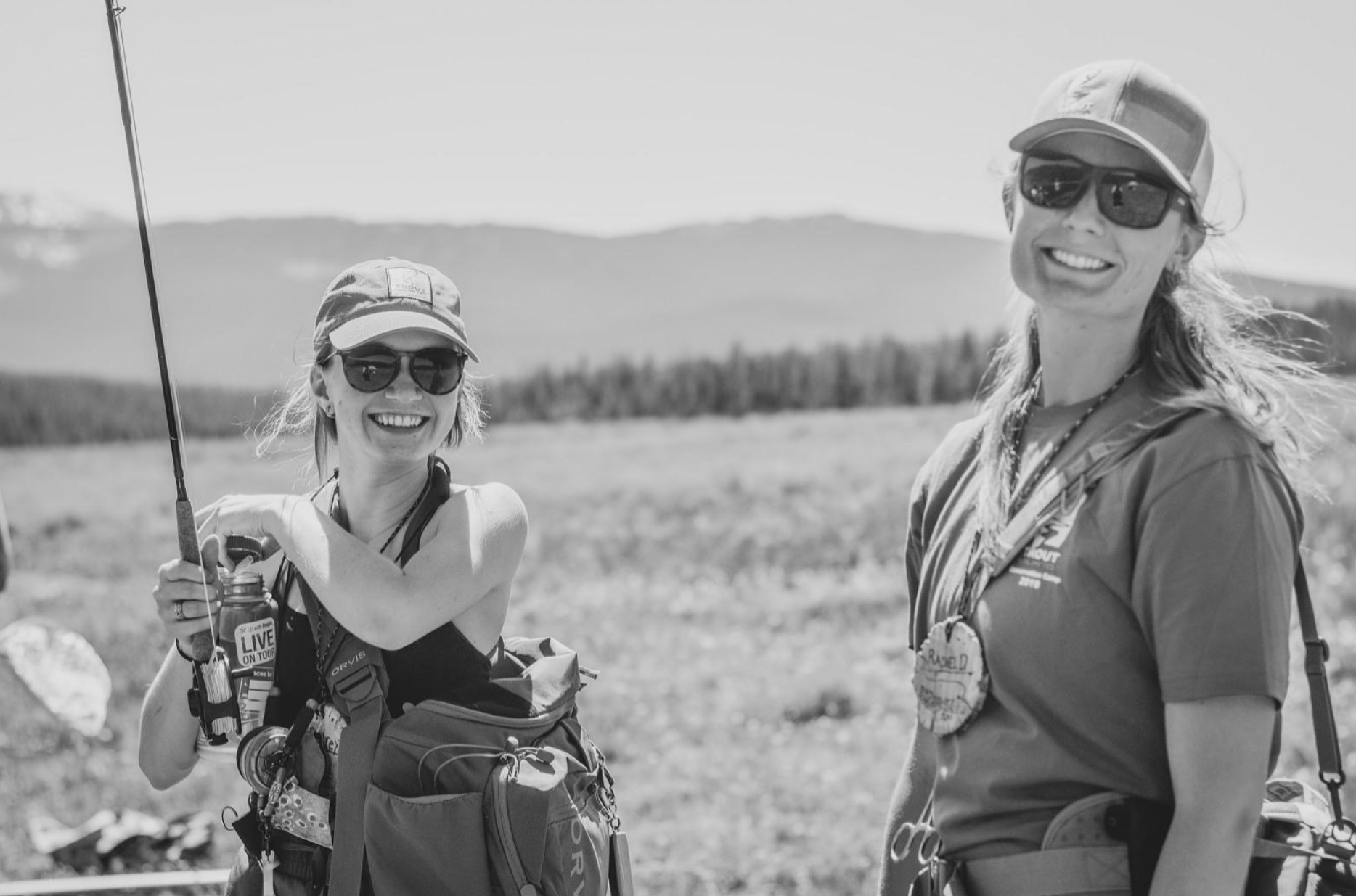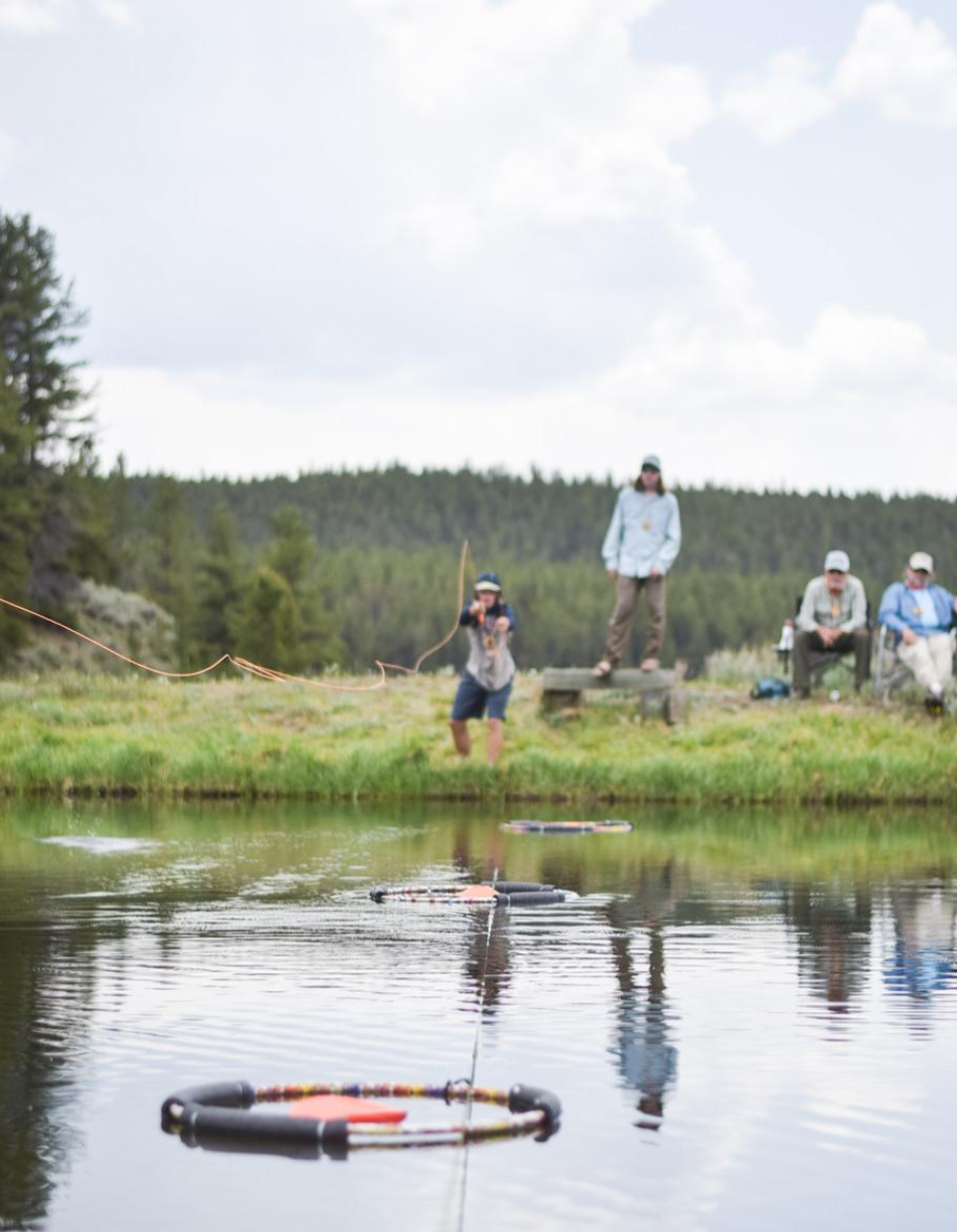Colorado Trout Unlimited (TU) is Colorado’s leading fisheries conservation organization with a mission to conserve, protect, and restore coldwater streams and their watersheds. Colorado TU has state offices located in Denver and 24 local chapters throughout Colorado. Colorado TU’s focus is on effective grassroots advocacy for river conservation, coupled with on-the-ground volunteer efforts that directly contribute to stream habitat and watershed improvement and to native trout restoration.
Position Summary: Colorado TU seeks a candidate with successful development experience, strong interpersonal skills, and a deep commitment to coldwater conservation to serve as the organization’s Development Director. With a budget in the high six figures, Colorado TU relies on a diversified mix of funding including grants and other restricted gifts (~50%), unrestricted individual and corporate giving (~25-30%), and events including an annual gala (~15-20%). The Development Director will be engaged across each of these funding areas but with greatest focus on unrestricted revenue from individuals, corporate gifts, and the annual River Stewardship Gala.
The position work plan includes:
Individual donor cultivation and management. Oversee Colorado TU individual donor giving programs including annual established giving levels (River Stewardship Council and Century Club), as well as larger planned gifts. Recruit, build and maintain direct relationships with key donors and prospective donors. For high-potential donors develop and implement cultivation plans. Coordinate with Executive Director and Communications Coordinator to ensure timely and compelling recurring contact with donors to maintain and enhance their long-term support. Help plan annual donor fishing and outreach events as part of overall engagement program. Work with communications coordinator to develop and execute online giving campaigns including crowdfunding initiatives and annual Colorado Gives Day campaign.
Corporate donor cultivation and management. Help manage existing relationships and recruit new corporate partnerships, for both restricted and unrestricted support. Recruit, build and maintain direct relationships with existing and prospective business supporters. Significant focus – but not exclusive – will be on outdoor/fishing industry partners. Coordinate with Executive Director and Communications Coordinator to ensure timely and compelling recurring contact with donors to maintain and enhance their long-term support.
Donor events. Plan and oversee key Colorado TU fundraising events, most notably the annual River Stewardship Gala. Working with the TU volunteer Gala committee, secure sponsors and auction item donors of goods and services for use with the event and manage all aspects of event execution. Collaborate on other potential engagement and fundraising events including but not limited to Fly Fishing Film tour showing(s).
Grant writing and cultivation. Assist Colorado TU program staff in identifying, pursuing, and managing grants supporting conservation projects and initiatives. This includes researching and cultivating relationships with prospective funders; program staff are expected to take the lead in follow-up reporting on grants, but in communication with the Development Director.
Chapter fundraising support. Lend expertise and technical assistance (e.g. in using Colorado TU fundraising program tools) to local Trout Unlimited chapters in support of their community fundraising efforts. May include advising on local fundraising events, assisting with identification of community grant opportunities, and nurturing local business partnerships.
Other duties. Provide relevant development content for the Colorado TU blog, website and social media outlets; assist with development-focused grassroots training and support as part of the Chapter Advisory and Support Team (“CAST”) initiative; contribute to Colorado TU’s equity practices, promoting a welcoming, inclusive culture on-the-ground, in our communications and in conservation engagement; participate in core Colorado TU events including the (fall) Rendezvous and Board of Director meetings.
Qualifications: Excellent communication and interpersonal skills. Demonstrated experience and success in donor development, including both individual donor cultivation and grant writing. Ability to recruit and effectively engage with volunteers. Dedicated commitment to conservation. Ability to travel statewide (~15% of time) and to work weekend and evening hours when needed.
This position is based from Colorado TU’s Denver office, but with the opportunity for remote and/or hybrid work from an in-state location with comfortable travel access to the Front Range and other donor/partner locations statewide. The position will report directly to the Executive Director.
Staff and leadership at TU understand that life outside of work is important to personal health, and we strive to create a healthy and family-friendly atmosphere. This is a full-time position with a generous benefits package. The approximate salary range is $50,000 – $60,000 depending on experience.
At TU, we value a diverse representation of staff, and we encourage candidates for this position who come from communities that have been historically under-represented in conservation and those who have been most impacted by degraded rivers and streams. We are committed to building space for all people to participate in our work to care for trout and their watersheds. We are proud to be an equal opportunity employer and welcome you to read more about TU’s equity practice and values.
How to Apply: Please upload a cover letter, resume, and names and contact information for three references to TU’s applicant system by visiting the website link below. We will begin reviewing applications on August 20; position is open until filled.
Apply here: https://recruiting.paylocity.com/recruiting/jobs/Details/664002/Trout-Unlimited-Inc/DEVELOPMENT-DIRECTOR---COLORADO-TU





















